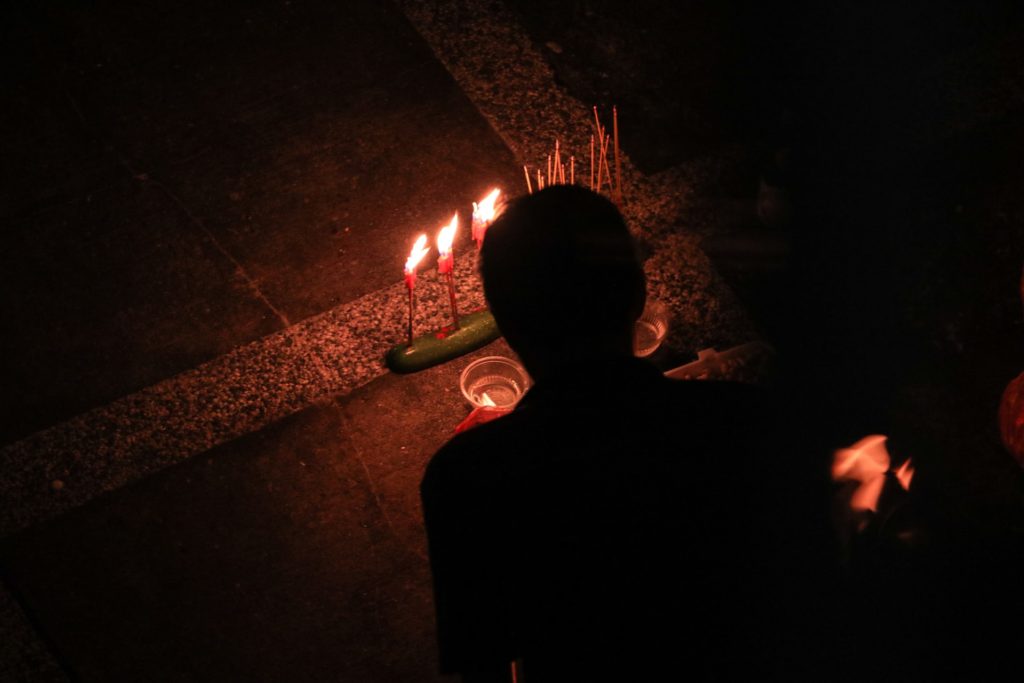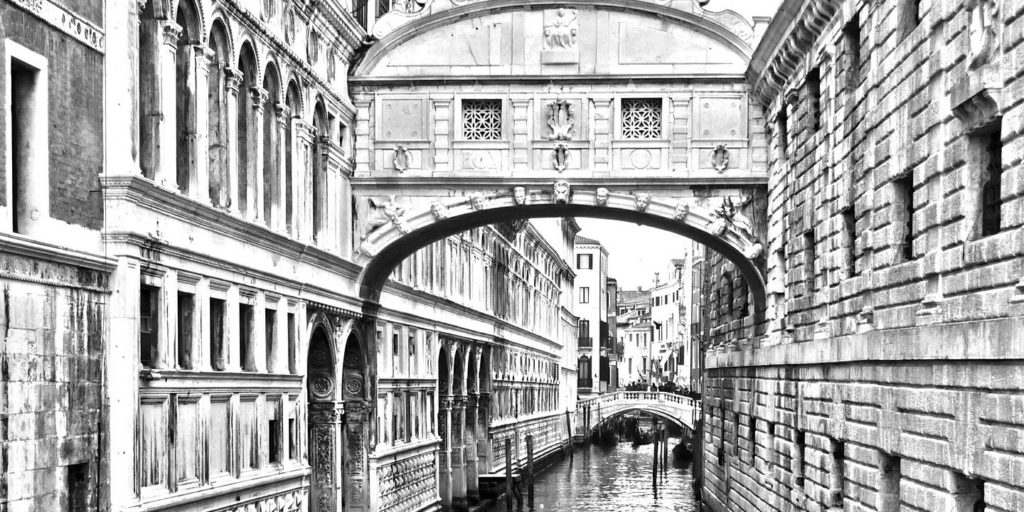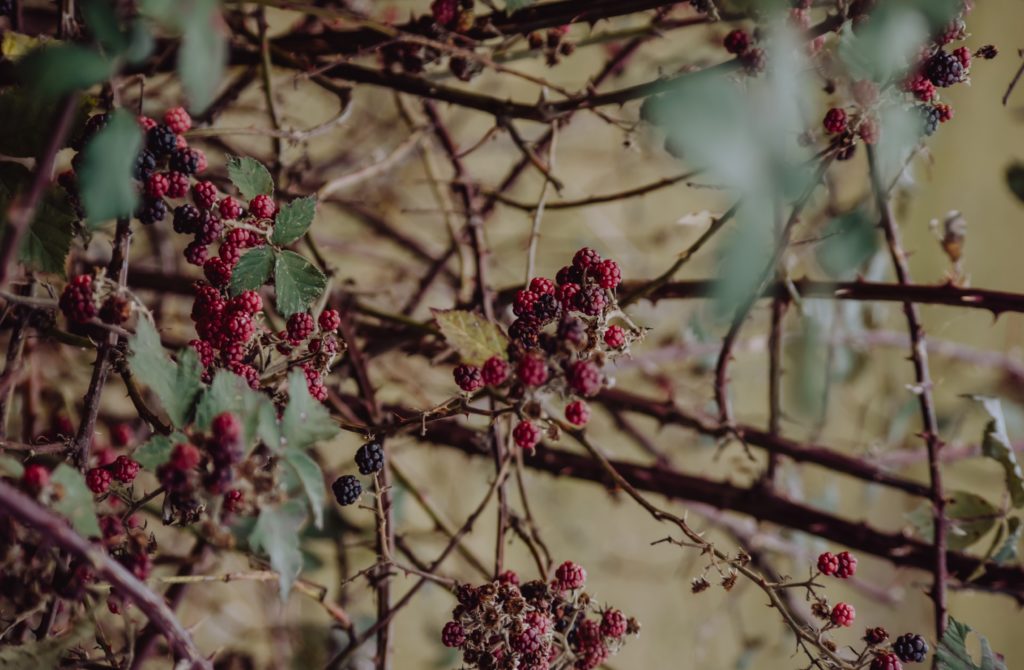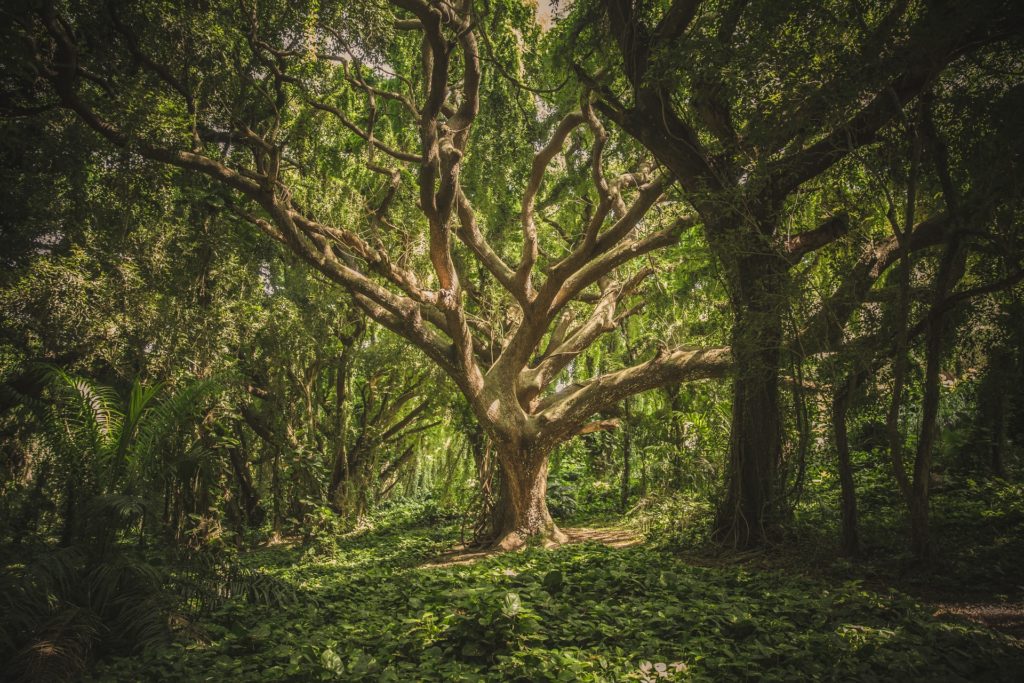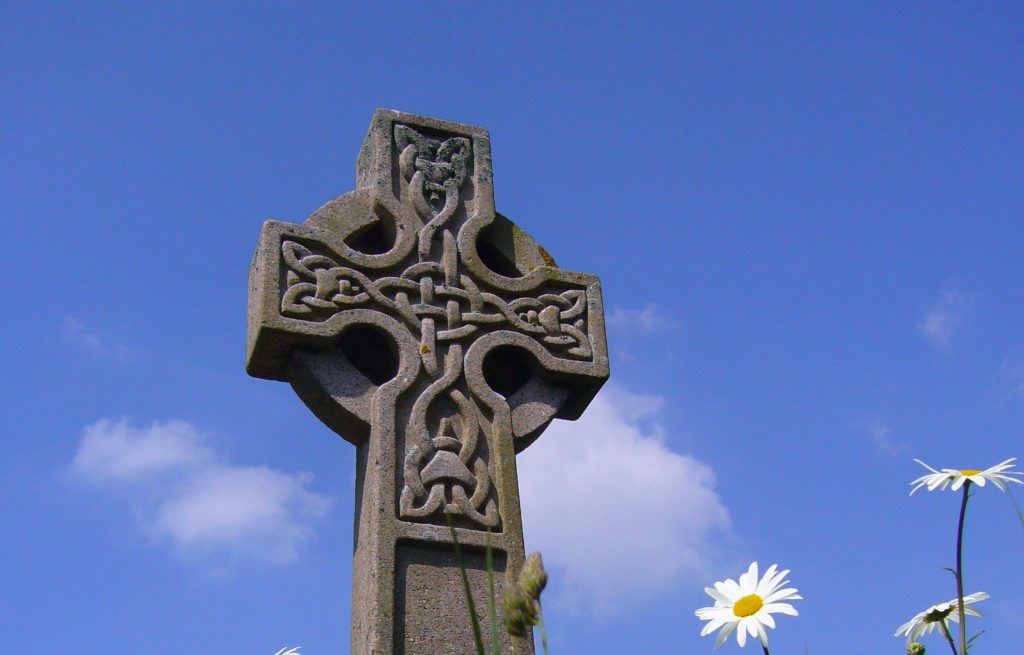Young Hodge the Drummer never knew –
Fresh from his Wessex home –
The meaning of the broad Karoo,
The Bush, the dusty loam,
And why uprose to nightly view
Strange stars amid the gloam.
– Thomas Hardy, ‘Drummer Hodge’
It is a Thursday and I am drinking tea at a plastic table, waiting for David Fong to place his order so that we can begin talking about hell. At the front of the queue, a tourist couple is struggling to navigate the kopi tiam idiom, a blended patois of Malay, Teochew, and Hokkien that encodes the oral culture of Singaporean coffee shops. A laminated card on the counter hurries the uninitiated towards iced teas and chocolate malts, but the actual menu extends beyond it. The right words dispatched in the right sequence may produce anything from syrupy grass jelly to a small black coffee, a spoonful of butter melting slowly in its centre.
David eventually returns to our table with a glass of teh tarik – frothy tea, pulled with condensed milk – and tells me that hell is quiet.
‘Like’ – he shifts in his seat – ‘like, imagine if you have something inside a big pool, with nothing to move it, nothing to disturb it. It just sits there. Quiet.’
David says these things delicately. He is twenty-eight years old, pursuing an MBA, and frequently interjects our conversation to clarify that he is not a believer but merely an ambassador for those who are not unbelievers. Specifically for his Chinese-Singaporean father, who, as an eighteen-year-old national service (NS) conscript on night-time guard duty, turned a corner and found himself briefly in hell. By the elder Fong’s description, it was more a distinct feeling than a place. It was as though he had been wrapped in a stillness, one that made no serious demands on the imagination or the nervous system.
This hell simply was, until he circled the block, and then it wasn’t. The only remnant of the experience came in a casual warning he offered David before his enlistment thirty years later: to be polite to everybody he saw and everything he could not.
‘Older people tend to be cautious,’ explains David. ‘I started to understand during my own NS – in the jungle, it’s easy to see things.’
In Singapore, people have been seeing things in the jungle for centuries. In 1819, the East India Company found a way through the soupy colonial politics of Southeast Asia to establish a trading post on the island. The port brought migrants, and migrants brought with them their ghosts. In dark, wet air, plantation workers from the Coromandel Coast saw chudails – sirens with backward feet who preyed on lone men until appeased by priestly oblations – while peninsular Malays looked deep into the undergrowth at the edges of their kampongs and sensed that the Orang Minyak, an oily demon that abducted girls, still slipped through foreign trees.
As the land began to accumulate new histories, its psychic threats became material. During the Japanese occupation of Singapore in the Second World War, the Imperial Army enacted a system of controlled terror on the local population. Civilians who failed to bow in the streets to Japanese patrols risked beatings and execution. In a single month in 1942, an estimated fifty-thousand ethnic Chinese men were rounded up and massacred on several remote beaches. The sites of these traumas are stained in folk memory. Today, people refer to them as ‘unclean.’
When I was seventeen I volunteered at a care home where, during a game of bingo, a woman with Alzheimer’s took my hand and told me softly to be careful of the soldiers in the mangroves. Later that year, a taxi driver complained that he could no longer stop for a cigarette in the forested side-roads of Changi because headless imperial sergeants whispered at him. ‘They always want to bother you, wah lau,’ he sighed.
After Singapore was expelled from the Malaysian federation in 1965, its young government made into political doctrine the Confucian principle of self-cultivation. In this sense, modern Singapore is an experiment in what happens when a philosophy about personal improvement is applied to the body politic. What emerges is a public culture in constant pursuit of discipline and excellence; what emerges is widespread homeownership and airports with butterfly gardens, the world’s highest grades in secondary-school maths and a functioning military largely composed of national service conscripts. Yet people still sit at tables in the half-shade of hawker centres, loosening their collars and talking about ghosts.
Towards the end of the twentieth century, where some once saw things in the jungle, others began seeing things instead of it. Where water encroached and the terrain was too viscous, they saw new ground, solid ground, ground made of imported sand on which one could build permanence. Ninety percent of the country’s forests have been removed since 1980 and with them the disparate folk superstitions for which they once made space. There remains only one place, a large offshore island, where one can find darkness of the particular texture and stillness that produced a need for caution in the minds of settler generations. Four decades ago, it was occupied by an agricultural community that lived quietly in cicada-scored heat. A photograph in the National Library shows an old man fanning himself on the steps of his provisions shop. Another records the existence of a temple to a sun deity. Today, however, Pulau Tekong is one of the most difficult places to access in Singapore – and, for many, the most difficult to avoid.
‘Taoists and Buddhists have a belief in spiritual balance,’ explains Benedict Chua, a twenty-nine-year-old personal trainer. We speak over the phone during his lunch break, in the eighth month of the Gregorian calendar and the seventh of the Chinese lunar. August in Singapore usually carries the sound of rehearsal flypasts and the scent of incense from roadside offerings, but the coronavirus lockdown has necessitated cancelling both the National Day Parade and communal observance of the Hungry Ghost festival. The festival marks the peak of the seventh month, a time when the gates of heaven and hell are said to swing open and the dead flood the world of the living. Paper replicas of luxuries and joss money are set alight to deliver them to ancestors in the afterlife. Over this period, those who believe hasten to guard themselves against qí guài: weird phenomena that accompany the sudden permeability of the spirit world.
Benedict points to this as he describes why Pulau Tekong crackles with a perpetual sense of qí guài in the popular imagination. ‘It goes back to the idea of places being filled and emptied. It’s all the same: hell, earth, Tekong.’ His voice briefly grows distant and I hear him unwrap his McSpicy. ‘When you have a place occupied by many human beings for a short period, they leave a vacuum that something else must enter for the sake of balance.’
He has spent more time on the island than most. Mandatory national service was instituted in 1967 for every able-bodied Singaporean male, and by 1987 Tekong was entirely vacated of its civilian population to house a new basic military training (BMT) centre for NS recruits. Temples and shop fronts have been replaced with concrete bunkers. The island is impossible to reach without authorisation from the Ministry of Defence, and for over thirty years has effectively existed only in the recent memories of the men who inhabit it for a few gruelling weeks of their lives, and then never return. Benedict, however, did return. Nine years ago, after his two-month BMT and a six-month programme at the Specialist Command School, he completed his service as a trainer for new batches of recruits in Tekong.
‘That’s how I collected all these stories. You probably know them, right?’ Then he rattles off a list that sounds like imaginary military code: long hair, ammo dump, three-door bunk, Rocky Hill, headcount.
The last on the list was the first I heard, relayed to me in primary school by a girl whose brother had recently finished his time on Tekong. The details were indulgent, the structure immaculate: a recruit goes missing on a march without the others realising because someone – or something – else responds in his place during the headcount. It is only on returning to camp that his absence is noticed; not long after, his body is found at the edge of the jungle, his insides piled neatly beside it. Recruits now occupying his bunk, apparently, often find him standing next to their beds at night.
Benedict speaks of his NS unambiguously and unironically. ‘I just took each day as it went. I was just doing my part, giving a year and eight months to the country.’ He refers to himself as a Singaporean son and insists that the five-thirty wake-up calls are necessary for ‘conditioning the civilian into a soldier’.
‘I personally never experienced anything out-of-the-ordinary in Tekong,’ he maintains, ‘except for a few things I saw.’
I ask him to clarify and after a pause, he offers, ‘I mean that I saw things, but did not experience them.’ Benedict has a personal methodology for recognising fact – honed, he says, from having to deal with occasional attempts at truancy from his recruits – which informs how he interprets his memories. To experience would be to believe; all he did was see. After a passing-out parade one year, he and the other instructors returned to the empty camp to find a bird laid out perfectly still in the centre of one of the bunks. When he went to sweep it into the bin, he discovered that its body had been hollowed out. Then there was the recruit who tapped him on the shoulder after a march and advised that the second floor of the building in which they were staying was ‘unclean’. ‘He had the third eye but didn’t make a big deal of it. It was cordial. He was just letting me know.’
Tekong is a slippery place. Unless you have recently been there, you will not know what it looks or feels like without relying on someone else’s account. When I ask Benedict whether he thinks its folklore may have developed from collective anxiety, from homesick boys negotiating their fears while digging shell scrapes in deep, black jungle, I realise that these things do not happen on his Tekong. ‘I didn’t think too much about that, to be honest,’ he replies. ‘I was just taking it one day at a time. I was doing my part.’
They did, however, occur on Shukri Jalil’s. He completed his BMT four years ago, and these days spends his time practicing film photography. He is especially proud of a series of images he has taken of mosques; they are gorgeous, saturated treatments, and, he asserts, a significant improvement on the kind of work he was producing when he bought his first camera during NS. ‘Back then, it was more of a distraction.’
In his last month of BMT, while on a night march in the jungle, someone at the front stopped and brought the rest of the line to a halt. There was a sound reaching out to them from the trees: a woman crying. Shukri says he does not remember who made the decision to continue, but he maintains that nothing was said. They waited, listened, and then marched on in silence. Some attempted to discuss it later, but never with much enthusiasm. It was, he says, more sad than frightening.
‘The Chinese guys in my company had their theories, but I was the only Malay there, the only Muslim. I knew what it would be according to my faith. It was a jinn.’
Jinn, in Islamic literature, are supernatural creatures, sometimes diabolical, occasionally benevolent. Shukri recounts their presence in his memory with the same prosaic conviction with which Benedict told me he merely saw things. ‘When I was younger, I was told that jinn appear to you when you are most troubled. They try and take advantage of you while you are in this state of mind, but you must resist.’ He pauses. ‘I am not surprised that so much activity is experienced in Tekong. From what I have seen, things can be difficult there. For many people.’
The precision with which he described the voice in the jungle dissolves when it comes to talking about institutional problems within NS. He speaks of certain struggles that he had, certain channels he tried to access to resolve them, certain closed doors. Yet there is no certainty to any of it, and his sentences disappear themselves halfway through. In Singapore, we are polite to structures that we cannot see. We have learnt not to break things, and only go so far as to report on the limits of their elasticity.
Get the best of Moxy directly in your inbox.
Over the past two decades, the usual fears attached to NS, the kind incubated by decades of insistent storytelling and improvised mythology, have been replaced with a more immediate anxiety. In February 2018, an eighteen-year-old NS recruit assigned to the Singapore Civil Defence Force was found dead at the foot of a block in his training institute. In May, another SCDF serviceman who insisted that he could not swim was pushed into a well by his sergeants as a joke; they managed to pull his body out after thirty-six minutes. Eight months later, a television actor on his two-week reservist training – an annual programme for which every man who completes NS is obliged to return – was crushed to death by the barrel of an artillery gun that was accidentally lifted while he was cleaning it.
‘You get all those old stories about dead women with long hair in the jungle,’ says Keith. ‘But when I was in NS most of them were about dead recruits. It was on all of our minds.’
Keith Goh never went to Tekong. He joined the Jalan Bahar campus of the Civil Defence Academy and completed his Basic Rescue Training there. The year before his enlistment, a recruit had jumped from the fourth floor of the barracks in which Keith would later live. ‘Some of the instructors who told folk tales also talked about the suicide like it was a spiritual imbalance that could haunt us. Which makes sense, in a way. If you put every able-bodied eighteen-year-old in the same conditions, not everyone will react to them in the same way.’
Over the course of his NS, Keith learnt first aid and basic firefighting. He even picked up a little Malay from his bunkmates, and when he was nineteen he discovered what a gunshot wound in the head looked like. ‘There’s no way to put it nicely,’ he says, ‘It’s a hole.’ Keith admits that he had prepared himself to see injuries as soon as he found out he would be assigned to the SCDF, but he had not thought that they would be found on the body of a fellow recruit. He was one of the first responders when a full-time national serviceman was found in his police barracks with his revolver on the floor beside him. He remained alive for a week.
These incidents are a few of the eight reported NS-related deaths that have occurred in the past five years. When looking through the archives for older cases, I found a clipping from the Straits Times that described the death of an NS recruit in 1983. He had disappeared from the tail-end of a route march but his absence had gone unnoticed because of two botched headcounts. When his platoon returned to camp and discovered that he was missing, a day-long search commenced. His body was found the next day, twenty metres off the jungle trail. A forensic pathologist concluded that the cause of death was a ruptured stomach but refused to rule out the possibility that this may have been brought about by an entrenching tool that was found nearby.
I thought about this boy a lot in the weeks that followed. He went into the jungle expecting to return to his life after a year and eight months; it seems unjust that his memory should have been contorted until it was an indeterminate horror story told to me on a school playground. His name was Tham Wai Keong, he was an able-bodied male, and he has been nineteen years old since 1983.
David Fong does not believe that hell can be found behind a Tekong block. He made some of his best friends during BMT and is grateful that it left him with a permanent appreciation of exercise. He does not believe. He wants to get his MBA and work for a multinational. Live abroad, even; not for long, but long enough to want to come home again.
David does not believe but he understands that there must always be those who do. He concedes that most national service folklore is invented by listless recruits, but argues that it is their right to invent it. ‘They are our experiences, our burdens. Our ghosts.’
When you spend weeks listening to ghost stories told with straight faces, you begin to perceive the functions they serve. I am not a Singaporean male and I will never step foot on Pulau Tekong, but I have come to understand how the evening light can turn vague in its jungles, staging spectacles in your peripheral vision that beseech you to turn your head: a shadow that shouldn’t be, a movement that wasn’t. I have learnt to recognise how, despite systematic efforts to condition boys into soldiers, the theatre of fear and the freedom to feel it allows able bodies to remain complex-minded.
Constructing a living mythology from your anxieties is a way of taking ownership of a year and eight months for which you did not volunteer. Perhaps it is inevitable that those who find themselves in this position will see something where there should be nothing. Perhaps it is something to hold onto when marching out by dark water, or through the centre of an impossible stillness.
All names in this piece have been changed at the request of the interviewees.
Kavya Deshpande read History at the University of Oxford. She wanted to join a pre-war repertory theatre but instead became an investment banker. There’s still time.

